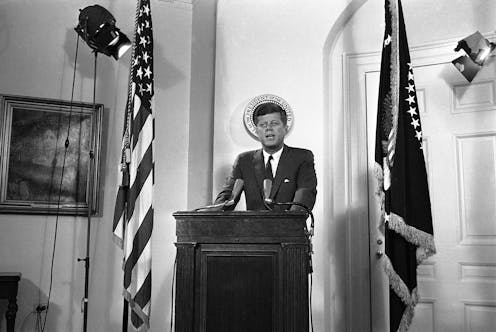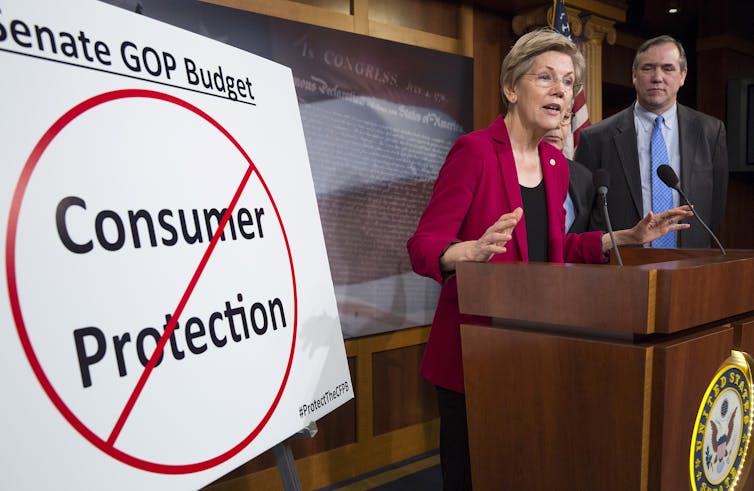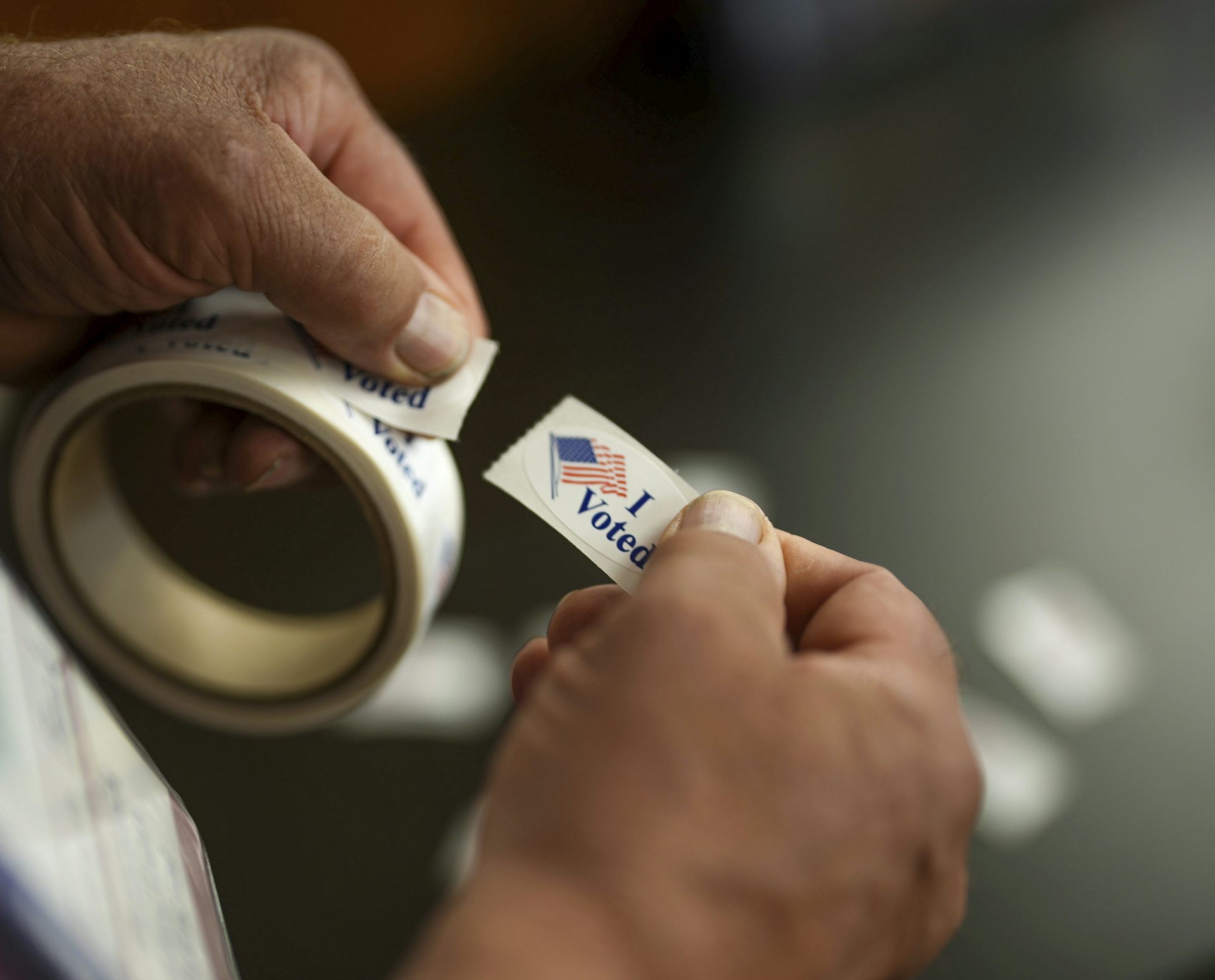Consumer rights are worthless without enforcement
JFK pushed consumer rights to the top of the national agenda in 1962, leading to a raft of new laws offering new protections. But without enforcement, such rights are meaningless.

Exactly 57 years ago, President John F. Kennedy made an impassioned pitch for stronger consumer rights.
“If consumers are offered inferior products, if prices are exorbitant, if drugs are unsafe or worthless, if the consumer is unable to choose on an informed basis, then his dollar is wasted, his health and safety may be threatened, and the national interest suffers.”
Kennedy offered these words of warning on March 15, 1962, a date now celebrated as World Consumer Rights Day. He then called on Congress to enact legislation to protect four fundamental consumer rights: the right to safety, the right to be informed, the right to choose and the right to be heard.
The address has become known as the “consumer bill of rights.” But Kennedy also discussed an equally important issue: how such rights would be enforced. After all, without enforcement, consumer rights are just empty promises.
Consumer rights flourish
The idea of consumer rights was nothing new in 1962.
As I describe in my research on the history of consumer credit regulation, the states took an early interest in protecting ordinary Americans against abuse by lenders and debt collectors, beginning in the earliest days of the republic. Most adopted usury laws limiting the price of credit in the colonial period, exemption laws shielding property from seizure by creditors in the 19th century and more tailored consumer credit regulations in the early and middle 20th century.
What was noteworthy about Kennedy’s address was not his push for more consumer rights, but rather his call for the federal government – “the highest spokesman for all the people” – to act on behalf of consumers instead of ceding the role of consumer protector to the states.
Congress heeded Kennedy’s call and passed a flurry of consumer legislation.
In the 1960s and ‘70s, it required lenders to clearly disclose loan terms through the Truth in Lending Act, mandated fair credit reporting and debt collection practices, created safety standards for cars and other consumer products, and banned discrimination in housing and consumer lending. More recently, in 2010, Congress created the Consumer Financial Protection Bureau and tasked the agency with guarding consumers against unfair, deceptive or abusive acts and practices in financial services.
The states also reinforced their decades-old consumer laws in the 1960s and '70s by banning unfair and deceptive acts and practices under state “UDAP” laws.
Accordingly, consumer rights today are far more robust than they were when JFK gave his speech. To be sure, new business practices regularly require that existing laws be updated to address unanticipated threats.
But the biggest challenge today is not the need for new consumer rights. Rather, it is ensuring that existing rights are enforced.

Legal fee recovery and class actions
There are basically two ways to enforce a consumer right: privately with a lawsuit or publicly via regulators.
The biggest barrier to effective private enforcement is financial. First of all, the harm to an individual consumer from a rights violation is often small, reducing the economic incentive to sue. Secondly, to sue in court, a consumer generally requires the assistance of an attorney, who must be paid. Finally, even if the individual goes to court and wins, the damage award is frequently too insignificant to deter the violator from engaging in profitable but illegal practices in the future.
Fortunately, two legal innovations have helped consumers overcome some of these hurdles.
One, rules allowing prevailing plaintiffs to recover attorneys’ fees, expanded with the raft of consumer rights legislation of the late 1960s. These provisions gave consumers the right to recover the costs of their legal representation along with any actual damages for some rights violations.
The other was the birth of the modern class action lawsuit in 1966, which allowed consumers who suffer similar monetary harms to aggregate their claims into a single large lawsuit, leading to multimillion dollar settlements.
Public enforcement
The other way to give consumer rights teeth is through public enforcement. And besides the potential for monetary awards, this method opens the door to other types of remedies for consumers.
For example, the New Jersey attorney general recently sued two auto dealerships, alleging that they sold damaged vehicles at unaffordable prices to “financially vulnerable” customers who were then left stranded when the dealers repossessed the cars without advance warning. The complaint seeks to ban the violators from selling car in the future, in addition to monetary relief.
Similarly, in 2018, the U.S. Department of Justice brought criminal charges against the perpetrators of a multimillion dollar scheme to defraud elderly and vulnerable consumers with the false promise of cash prizes. The violators could be subject to both fines and imprisonment.
In 2017 alone, the Federal Trade Commission directly returned almost $320 million to consumers through enforcement actions, not to mention its work overseeing the return by FTC defendants of over $6 billion to consumers.
Enforcement shortfalls
Recent developments, however, raise concerns about the future of consumer rights enforcement through both public and private channels.
The strength of public enforcement is subject to the whims of state and federal officials, who may reduce enforcement resources or refuse to bring enforcement actions.
A prime example is the weakening of the Consumer Financial Protection Bureau, which from 2011 through 2017 helped millions of consumers receive nearly $12 billion back from misbehaving financial institutions. A recent study found that CFPB enforcement activity has declined significantly since the end of 2017, when Richard Cordray, its first director, stepped down.
His temporary replacement, Mick Mulvaney, froze all new enforcement actions. He subsequently dropped one ongoing lawsuit against a group of payday lenders and declined to file charges against another lender that had previously donated to Mulvaney’s political campaign. The head of its student loan office resigned last August, alleging that the current CFPB leadership had “abandoned its duty to fairly and robustly enforce the law.”
In a similar vein, Kathy Kraninger, recently appointed as CFPB director, has proposed reducing her own agency’s budget by about 4 percent in 2019 and 9 percent in 2020.
As for private enforcement, the ability of consumers to aggregate their claims has been endangered by the spread of mandatory pre-dispute arbitration agreements. These contract terms, found in a variety of consumer agreements, prevent consumers from pursuing class relief in court.
Each injured party must either bring an individual action, which may be economically unfeasible, or be left without a remedy. The U.S. Supreme Court’s recent arbitration decisions offer little hope that judges alone will keep the courthouse door open to consumer class actions.
Furthermore, Congress narrowly voted in 2017 to repeal a CFPB rule that would have prevented financial service providers from requiring consumers to waive their class action rights.
Paper tigers
Compared with 1962, when President Kennedy put consumer concerns on the national agenda, ordinary Americans now have far more robust rights to safety, to information, to choice and to a fair hearing.
But consumer rights do not enforce themselves. Public enforcement requires funding and willing leaders. Private enforcement requires legal devices that allow consumers to pay attorneys for their work.
Without an ongoing commitment to enforcement, consumer rights may become paper tigers, offering the appearance of protection without any teeth.
Anne Fleming does not work for, consult, own shares in or receive funding from any company or organisation that would benefit from this article, and has disclosed no relevant affiliations beyond their academic appointment.
Read These Next
Drug company ads are easy to blame for misleading patients and raising costs, but research shows the
Officials and policymakers say direct-to-consumer drug advertising encourages patients to seek treatments…
How the Seattle Seahawks’ sale will score a touchdown for charity 8 years after Paul Allen’s death
Selling a sports team is much more complicated than selling assets found in a typical estate, such as…
Minneapolis united when federal immigration operations surged – reflecting a long tradition of mutua
Minnesotans from all walks of life, including suburban moms, veterans and protest novices, have bucked …





